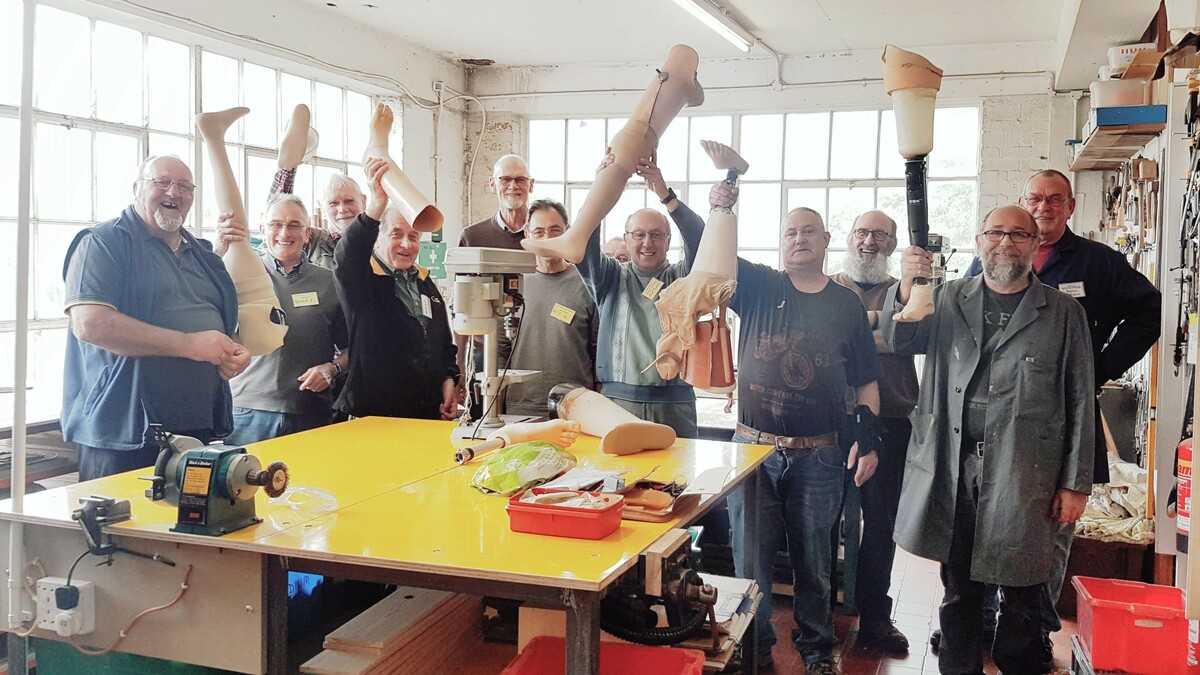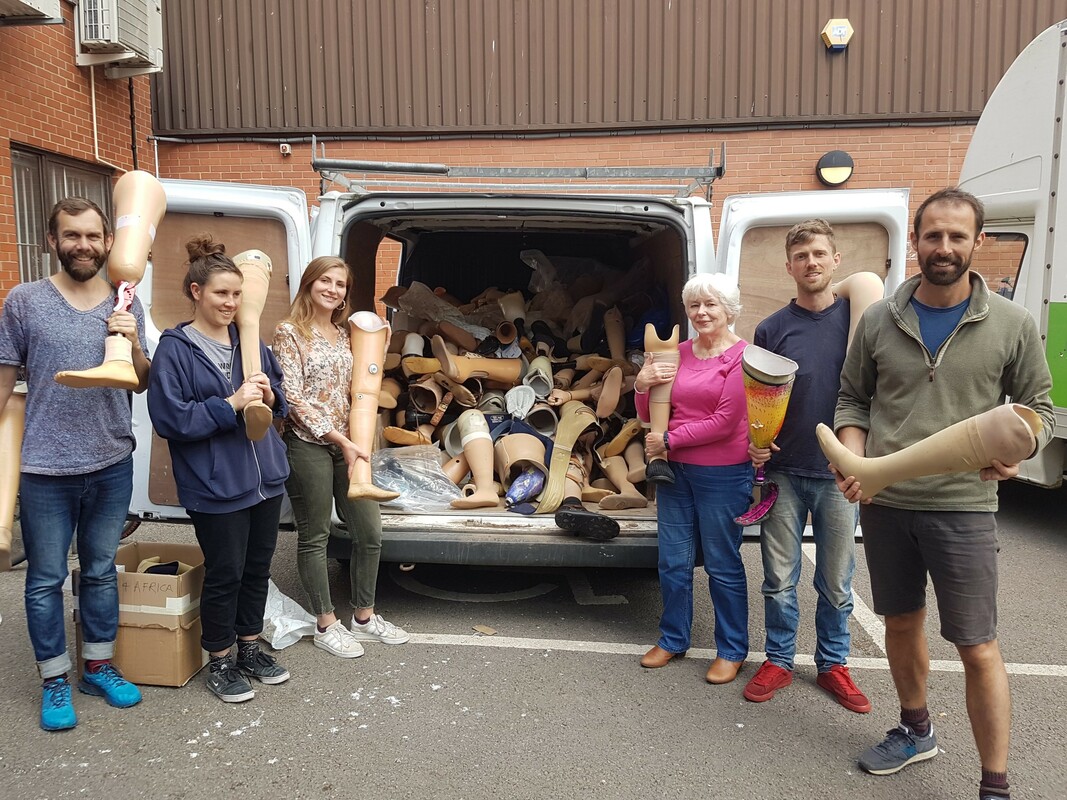

Background
Legs4Africa is the charity that gets people walking again in sub-Saharan Africa. Through recycling prosthetic legs that would otherwise end up in landfills, and improving services for amputees, the charity is getting thousands of people back on their feet every year. Since 2014 they have sent over 10,000 legs to Africa, and they are beginning to branch out into collecting limbs across Europe, Canada, Australia and the USA. Alongside recycling, and with the aim of providing holistic care to amputees, the charity also has projects providing physiotherapy, healthcare, counselling and access to funding for courses to help amputees back into work or education, particularly female amputees in areas such as prosthetics, orthotics, and counselling where they are underrepresented.
Issue
Legs4Africa came to Cranfield Trust for help in developing an action plan to improve their distribution processes and logistics. Africa has a population of about 1.3 billion people and it’s estimated that 0.6% of the population have a lower limb amputation. That’s almost 1 in every 200 people. 88% of these people have a Below Knee Amputation whilst the remaining 12% have an amputation above their knee.
In Director Tom Williams’ own words:
“The idea for the charity began back in 2013 during a trip to The Gambia to deliver a prosthetic leg that I had custom made for a friend’s father that I met on a previous visit. Over these two visits, I was exposed to both the enormous need for prosthetic legs in the country as well as the excessive wastage of perfectly serviceable prosthetic leg components in the UK. Immediately I could see that this was a logistical problem and realised the huge potential of reaching out to limb fitting centres and personal donors across the UK and within the first year, I was able to redirect 500 legs away from landfill. Soon 80% of limb centres in the UK were on board and the Legs4Africa brand was getting some strong and positive recognition across the industry. I mainly see what we do as a logistical problem, moving legs and components across the globe between the hands of passionate people and organisations that want to make a difference. My knowledge of international logistics is limited and we believe there is potential for a more fluid process.”

Solution
Working with volunteer consultant Steve Whitlock, the charity was able to break down their existing resource supply chain, look for strengths and weaknesses and, through system thinking, develop a streamlined and well-documented process that those across the supply chain could support. The charity agreed to run the process for 6 months before carrying out an evaluation and adjusting as needed.
Impact
The charity has embraced the ambitious challenge of recycling and extending the serviceable life of unwanted prosthetic leg components across developed nations, ensuring that more people with limb loss in Africa can walk again. Collecting legs at a global level and having them dismantled and serviced before being distributed to a trusted network of mobility centres in Africa, using a systematic method, allows Legs4Africa to increase their recycling and resilience capacity.
Director Tom Williams explained:
“If we can demonstrate that we have seamless logistics we can likely attract more limb fitting centres globally to donate their returned legs to us. This will mean more legs to dismantle and ship to African partners, as well as making sure that donors feel valued and further invested in the cause.”
Volunteer Steve added:
“I really enjoyed working with the Legs4Africa team, who after being challenged about what they were doing, what was potentially possible and having developed options together, would consistently take ideas to the next level. It was a pleasure to work with such a proactive team.”
Cranfield Trust has also provided a mentor for one of the charity’s founding Directors, “On Call” advice to the charity about an international bursary programme in Tanzania, as well as a pay structure review at the charity, all thanks to the generous pro bono support of volunteers in and around Bristol, where the charity is based.



